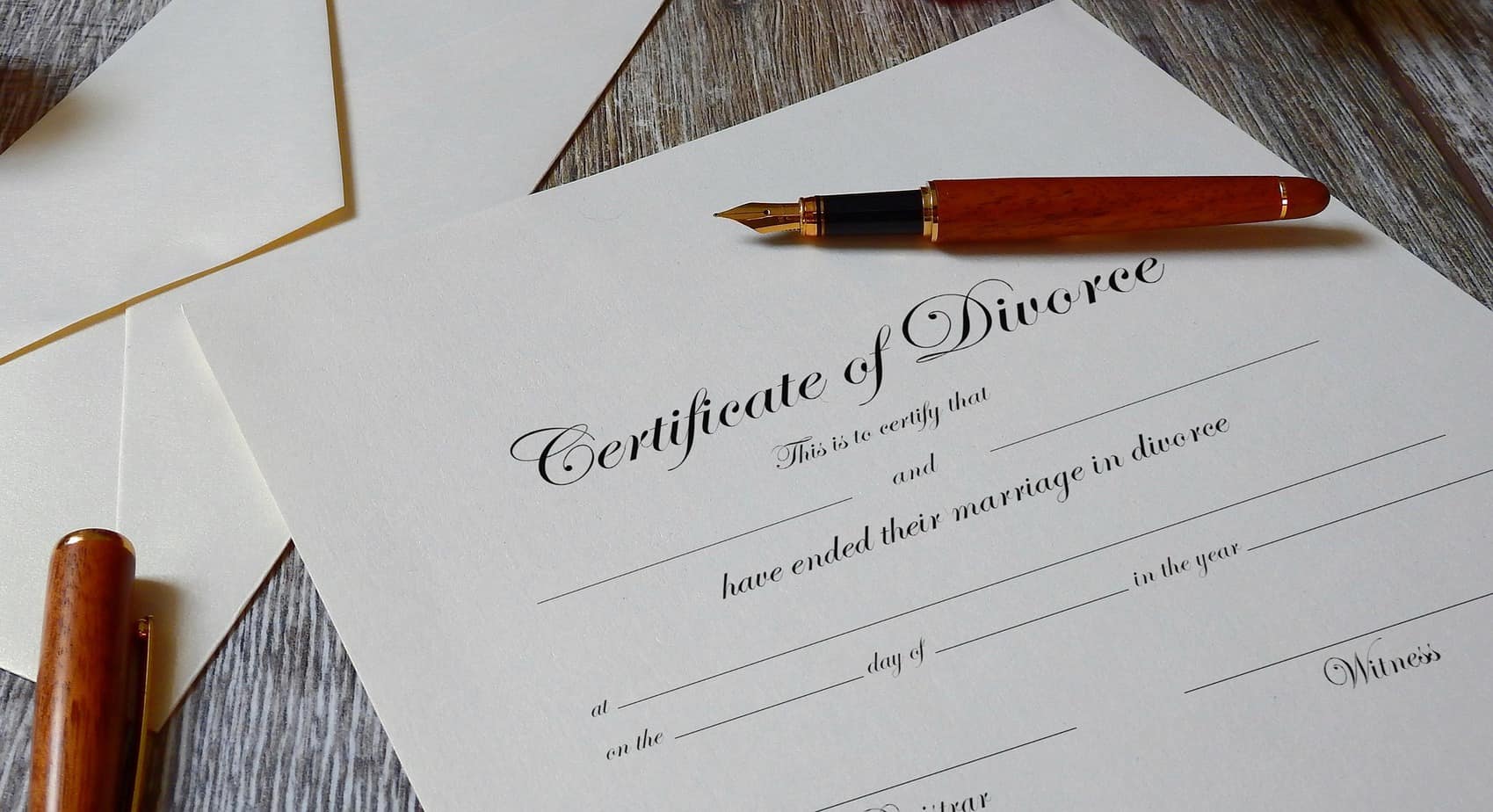When considering a divorce, one of the many things you must consider is the cost. Unfortunately, hiring a divorce lawyer is not cheap, and most will require you to pay a handsome sum, including a retainer fee. So what is the average retainer fee for a divorce lawyer?
First, we will look at the average retainer fee is and everything else you may need to know about hiring a divorce lawyer.
Keep reading to learn all about the average retainer fee for a divorce lawyer.
Retainer fees explained
A retainer fee is the money you pay upfront to secure a lawyer’s services. The lawyer will then bill you for their services on an hourly basis, up to the amount of the retainer fee.
This differs from a flat fee, where you would pay one price for the lawyer’s services regardless of how much time they spend on your case. Retainer fees are more common in divorce cases, as they vary significantly in time and complexity.
The average retainer fee in a divorce case
The average retainer fee for a divorce lawyer can vary greatly depending on your region, the lawyer’s experience, and the specifics of your situation. However, most lawyers will charge between $3,000 and $5,000 for their services.
Factors influencing the retainer fee can include the following:
- The lawyer’s experience and qualifications
- The complexity of the divorce case
- Whether the case goes to trial
- The amount of work the lawyer has to do on your behalf
- The type of divorce you are seeking
Let’s take a brief look at each of these factors in turn.
The lawyer’s experience and qualifications
A more experienced lawyer will generally charge more for their services than a less experienced one. This is because they better understand the law and are more likely to resolve the case quickly and efficiently.
The complexity of the divorce case
A more complex divorce case will generally require more work from the lawyer, which means they will charge more for their services. This could include many assets to split, disagreements over child custody, or complicated financial arrangements.
Whether the case goes to trial
If the case goes to trial, the lawyer will likely need to spend more time on it and charge more for their services.
The amount of work the lawyer has to do
Not all lawyers do the same amount of work on a divorce case. Some may review the paperwork and give you some advice, while others will be more hands-on and represent you in court. The amount of work required will affect the lawyer’s fee.
The type of divorce you are seeking

There are two main types of divorce: contested and uncontested. A contested divorce is more complex and requires more work from the lawyer, while an uncontested divorce is more straightforward and can be resolved quickly.
As you can see, several factors can influence the retainer fee charged by a divorce lawyer. It is important to remember that this is just an average, and your lawyer may quote you a different price.
What the retainer fee includes
The retainer fee covers various services that your lawyer will provide for you. This can include reviewing your case, meeting with you to discuss your options, preparing and filing court documents, representing you in court, and negotiating with the other side.
Remember that the retainer fee does not include expert fees (like for a child custody evaluation), mediation costs, or court costs. These will all need to be paid separately.
How lawyers use retainer fees
When you pay a retainer fee to a lawyer, the money is placed in what is known as a trust account. This account is kept separate from the lawyer’s funds and can only be used for your case.
As work on your case progresses, the lawyer will bill you for their services. They will deposit the money they earned from the trust account into their business account.
For your case to progress, the lawyer needs to have enough money in the trust account to cover their anticipated time working on your case. If they do not, they must ask you for more money or stop working on your case until you can pay more.
Timing of retainer fee payment
Most lawyers will require the retainer fee to be paid before they begin working on your case. This helps ensure that the lawyer can devote their time to your case and that you are serious about moving forward with the divorce.
Some lawyers may be willing to work on a payment plan, so ask if this is an option. Before agreeing to it, you should also understand what the payment plan entails.
Replenishing and returning the retainer fee
Once all of the work on your case is completed, any money left in the trust account will be returned to you. This can happen in one lump sum or several smaller payments, depending on what was agreed upon when you first hired the lawyer.
It’s important to understand that the retainer fee does not guarantee how much you will spend on your divorce. Instead, think of it as a deposit or advance payment.
If your case is more complex than anticipated or takes longer, you may need to pay more to the lawyer. It would be best if you discussed this possibility with your lawyer beforehand to avoid surprises.
Legal aid when you don’t have money for a retainer fee
If you can’t afford to pay a retainer fee, you may be able to apply for what is known as legal aid. Legal aid is a government-funded program that provides free or low-cost legal services to people who cannot afford them.
Each state has its criteria for who is eligible for legal aid, so you will need to check with your local legal aid office to see if you qualify.
If you don’t qualify for legal aid or can’t find a lawyer willing to work on a payment plan, you may have to represent yourself in court. This can be daunting, so research and get as much help as possible.
Additional tips about retainer fees
Now that you’ve got the low-down on the basics let’s dive into some lesser-known but equally important considerations regarding retainer fees. Because hey, when it comes to a life-changing decision like divorce, you want to be as informed as possible, right?
Negotiation is your friend
- Believe it or not, retainer fees can sometimes be negotiable. If you have a good relationship with your attorney, working out a lower upfront cost or a flexible payment schedule may be possible.
Get the details in writing
- Always ask for a written agreement outlining the specifics of what the retainer fee covers. This will help you avoid any misunderstandings later on.
Communication is key
- Keep an open line of communication with your attorney about how the retainer is being used. Many lawyers will provide you with itemized billing statements, so you know exactly where your money is going.
Do your homework
- Consult multiple lawyers and get their quotes on retainer fees and hourly rates. This way, you can weigh your options carefully before making a decision.
Watch out for extras
- Some services might not be included in the retainer fee. For example, court filing fees or costs for photocopying documents are generally billed separately. Always ask upfront to avoid surprise costs.
Use free consultations
- Many divorce lawyers offer free initial consultations. Use these to gauge if the lawyer is a good fit for you without committing financially.
Consider a limited-scope representation
- If you can’t afford full representation, some lawyers offer “limited scope” or “unbundled” services that handle only specific parts of your case, thus reducing costs.
By understanding all the nuances that go into a retainer fee, you’ll be better equipped to make an informed decision. After all, knowledge is power. Best of luck as you navigate through this challenging phase in your life.



